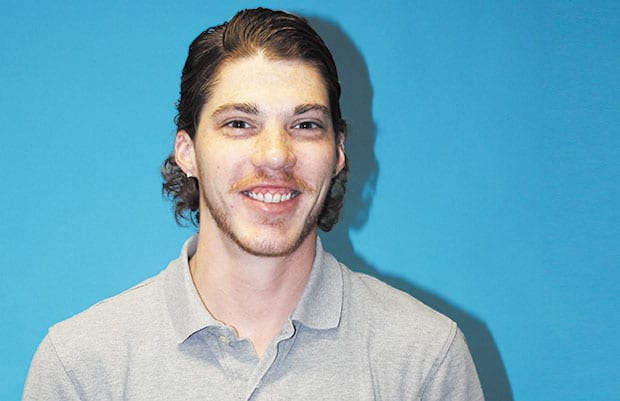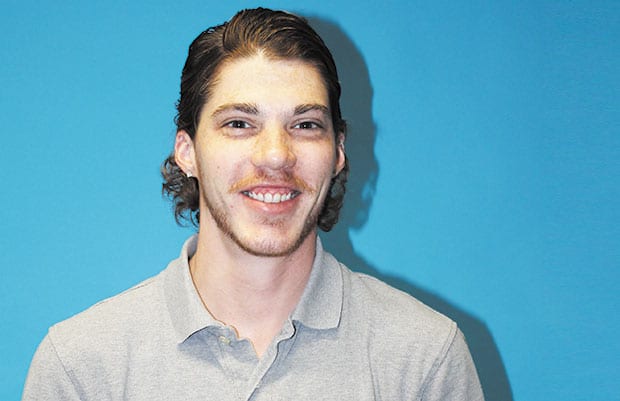As possibly the only transgender funeral director in the area, Scottlynd Cosgrove would like others in his field to learn what’s appropriate when dealing with a trans body

Scottlynd Cosgrove
DAVID TAFFET | Senior Staff Writer
As far as Scottlynd Cosgrove can tell, he’s the only licensed embalmer and funeral home director who has transitioned. And he said he has handled five funerals for transgender people — and every time, there were problems.
“The families were not supportive,” he said, adding that he encountered other problems in some instances. In some, “Regardless of gender marker changes, the death certificate still had the birth gender.”
That’s because even though the deceased had taken care of the paperwork during their life, the medical examiner ruled based on the physical exam. The person had had her gender marker changed, but she had not had gender confirmation surgery.
And faced with an unsupportive family, Cosgrove said, he could do nothing other than “untransition” the body before burial. It was either that or refer the family to a different undertaker, who might have been less respectful. And he could have lost his job on top of everything else.
Cosgrove was asked recently to participate on a panel addressing others in the funeral industry, discussing the best way to handle the bodies of transgender people and to work with their families.
Cosgrove said he told the audience that the worst thing he had seen was a funeral director talking to the unsupportive family of a transgender person. As the family began making fun of the deceased, the undertaker joined right in making jokes.
“My position is speaking to individuals respectfully,” he said. That means never making jokes about the person who died, even if the family is acting in a disrespectful way.
In speaking with family members, “It might be most respectful to remain gender neutral,” he said, suggesting that funeral directors say things like, “I’m sorry for the loss of your loved one,” and “I’m sure your loved one was a wonderful person.”
Cosgrove said the transgender people he’s buried had not had their gender markers changed. He said his work would have been easier had they had birth certificates changed to indicate their proper gender and then had birth certificates and marriage licenses that matched, although he acknowledged birth certificates are changed in the state where someone was born and not all states make that very easy.
He said that if all the paperwork isn’t in place, “then the funeral director or mortician will decide on the gender on the death certificate.”
In none of the five cases he’s worked with was paperwork in place, Cosgrove said.
“Once things are legally in place — birth certificate, name change — the family’s hands are tied,” he added.
During the service, the families can say whatever they want to say, Cosgrove said. Of the five transgender funerals he’s handled — two female-to-male and three male-to-female — he said the comments during the service were atrocious. The family of one of the trans women described her as a whore. The trans men were obviously on hormones and referred to as women.
Cosgrove didn’t begin his four-year funeral degree until after he had transitioned. Before that he had come out as lesbian and was a nurse. So, he said, the comments he heard as a funeral director about transgender people were nothing new. As a nurse, one of the most atrocious comments he remembers about a trans patient was, “Have I got a show for you.”
Cosgrove started his transition in Claremore, Okla., where he worked for the Veterans Administration. He was the first to go through the court system there to change his gender marker.
“No one had a problem with it,” he said. Then he moved to Dallas, with its large LGBT community.
“There’s lots of ignorance in the gay community,” he said.
When approached by gay men at JR.’s, he’s tried to show the same respect he uses at work. He thanks them, but explains he’s straight. That often leads to questions about why he’s in a gay bar if he is straight, in a tone that’s partially confused but also annoyed.
His answer: “Because I’m the T in LGBT.”
This article appeared in the Dallas Voice print edition March 17, 2017.

